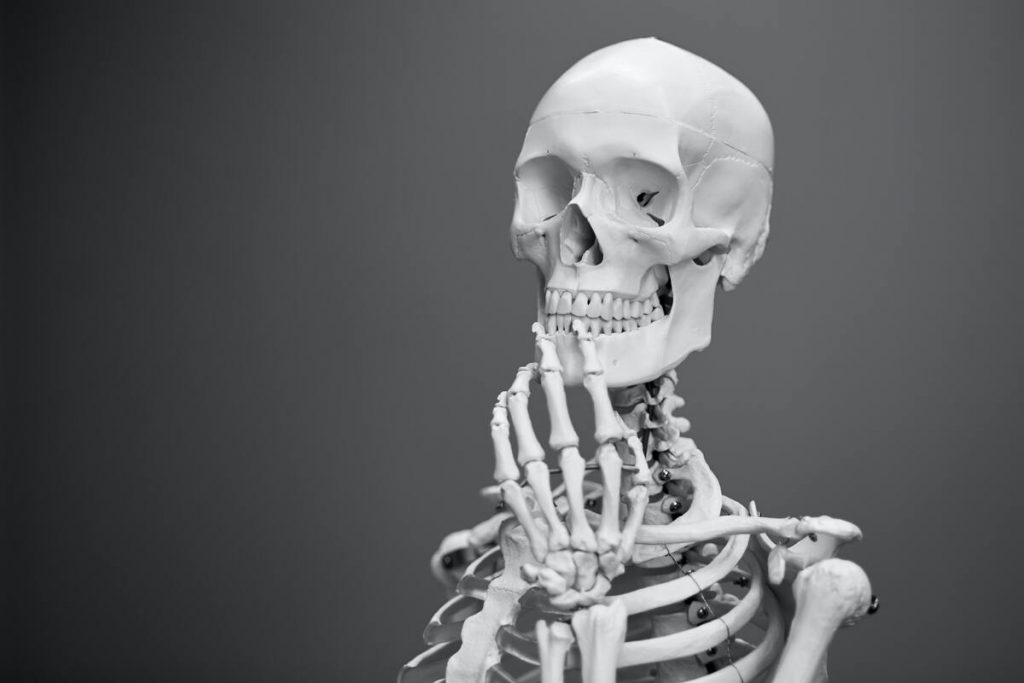When you think about bones, you might think about Halloween skeletons or horror movies where people fall and break their bones. What you might not think about is that your bones are incredibly strong and durable—they have to be in order to support your body and keep you upright. Unfortunately, as you age, your bones can become weaker and more brittle, which puts you at risk for conditions like osteoporosis. However, there are things you can do to help prevent bone density loss. Keep reading for tips on how to prevent bone density loss:
Get enough calcium
As you age, it’s important to prevent bone density loss. One of the most important things you can do is ensure you’re getting enough calcium. Calcium is essential for strong bones, and your body needs more of it as you get older. You can get calcium from dairy products, leafy green vegetables, and certain types of fish. You can also take a calcium supplement to ensure you’re getting enough.
In addition to calcium, you also need to get enough vitamin D to absorb the calcium. Vitamin D is found in fortified milk, cereals, oily fish, and egg yolks. You can also get it from exposure to sunlight. Getting enough calcium and vitamin D will help to keep your bones healthy and prevent bone density loss.
Eat a protein-rich diet
Another way to prevent bone density loss is to eat a protein-rich diet. Protein is an essential nutrient for maintaining strong bones. It can be found in various food sources, including meat, poultry, beans, and tofu.
In addition to including protein-rich foods in your diet, you should avoid processed foods and sugary drinks. These foods can cause inflammation and lead to weight gain, which can put additional strain on your bones. Making simple changes to your diet and lifestyle can help prevent bone density loss and keep your bones healthy and strong.

Don’t smoke
Smoking is one of the worst things you can do for your bones. In addition to the well-known risks to your lungs and heart, smoking also leads to bone density loss. This is because smoking decreases the amount of blood flow to your bones, depriving them of essential nutrients.
In addition, smoking causes the body to produce less collagen, a protein that helps keep bones strong. As a result, smokers are at a higher risk of developing osteoporosis. This condition leads to fragile bones. Quitting smoking is one of the best things you can do for your overall health, and it will also help to keep your bones healthy.
Limit alcohol consumption
While many factors contribute to bone density loss, one of the most important is alcohol consumption. Alcohol interferes with the body’s ability to absorb calcium, essential for maintaining strong bones. Furthermore, alcohol increases the excretion of calcium in urine, leading to further bone loss. For these reasons, it’s important to limit your alcohol intake if you’re concerned about losing bone density.
Of course, moderate alcohol consumption isn’t going to cause severe bone loss overnight. However, over time, it can significantly impact your bone health. So if you’re looking to protect your bones, it’s best to limit your alcohol intake.
Get tooth implants
Losing teeth can seriously impact your oral health, but it can also lead to bone loss. When teeth are missing, the surrounding bone begins to deteriorate. This process is known as resorption, and it can result in a significant loss of bone density. In addition, missing teeth can make it difficult to eat and speak properly.
To combat this, consider getting tooth implants. Tooth implants are a safe and effective way to prevent bone loss and maintain oral health. Unlike dentures, which can become loose and uncomfortable, implants are anchored directly into the jawbone. This provides a stable foundation for false teeth, and it also helps to preserve the jawbone. As a result, implants are an ideal solution for anyone who has lost one or more teeth, and it can prevent further bone density loss.
Get enough exercise
You know that exercise is good for you, but you may not know that it is essential for bone health. Weight-bearing and resistance exercises help to stimulate bone growth and maintain bone density. As you age, your bones naturally lose density, making them more susceptible to fractures. However, regular exercise can help to prevent this loss of bone density.
In addition, exercise can also help to improve the quality of your bones, making them stronger and less likely to break. So if you want to keep your bones healthy, get enough exercise.
It’s clear that there are many things you can do to prevent bone density loss. Eat a protein-rich diet, get enough calcium and vitamin D, limit your alcohol intake, and exercise regularly. These are all important steps in maintaining healthy bones for years to come. If you’re concerned about losing bone density, make sure to adopt these healthy habits today.
